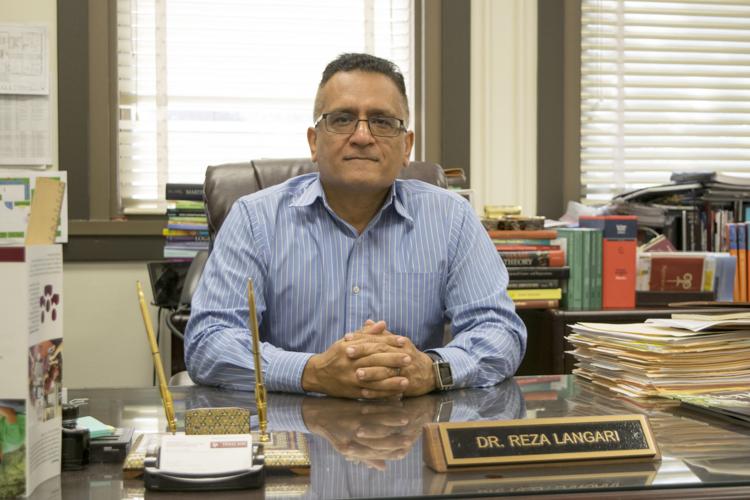With the goal of providing softer skills for career advancement, the College of Engineering is creating a new online degree program starting in Fall of 2018.
The Master of Engineering Technical Management is an online 21 month, part-time degree program aimed at industry professionals.The program hopes to further industry professionals who have been in the workforce for at least four years and are looking to continue their education and career.
Jordan Sass, assistant director for Master of Engineering Technical Management, said the new program is aimed toward professionals in need of clarity on project management and processes.
“It’s geared toward anyone who has that technical professional background, people who are looking to take the next step in their career or if they are already there, people who are looking for clarity of how to manage projects and processes better,” Sass said. “I think it is groundbreaking because we are filling a gap in industry that we have identified through research surveys.”
After doing some research and discussions with industries, the College of Engineering recognized a need for the managerial side of a technical or engineering project. Engineering Technology and Industrial Distribution Department Head Reza Langari said those skills are essential for people to move to the next level in technical careers.
“What happens is engineering and engineering technology degree programs are so intensely focused on technical content that some of the softer skills like managing people or processes, dealing with business and financial aspects of a manufacturing or engineering operations, regulatory, legal and personal issues, are really not sufficiently covered in a traditional undergraduate degree program in engineering and engineering technology,” Langari said.
Students in the program complete the degree online but spend one week at the beginning of each year in College Station and complete a Capstone project aimed to benefit the company the students work for.
“[The project is] going to ask [students] to look within their current company, find a project the company needs help with, and they are going to spend a year looking at that,” Sass said. “They are going to spend a year on this, so that when they finish this program, hopefully they will have something in their hand that they can unveil or unroll at work and that should be able to benefit the students and the employers.”
The 25 by 25 initiative by the College of Engineering aims to have 25,000 students by 2025, including satellite campus, graduate and online degree students. Associate Dean for Academic Affairs for the College of Engineering John Hurtado said this initiative will tie into the 25 by 25 plan by expanding the online degree programs.
“I think it helps to continue to put us on the path for our online education,” Hurtado said. “It’s something we are paying attention to and would like to offer more for our students that want to be Aggies.”
The courses are taught by professors with years of industry experience and classes focus on the non-technical sides of managing a business.
“[The faculty are] people who have been there and done that and can teach you this is how we made it through, this is how we manage projects as opposed to a research based program,” Sass said. “It should give our faculty insight into what everybody is doing and allow them to customize it to benefit everyone.”
Program director Ben Zoghi said the main challenges of setting up the new program stemmed from finding faculty but is excited to embark on this new journey.
“There were two challenges, getting a passionate committed faculty to lead the program through the process and financial support from the depart head,” Zoghi said. “I’m most excited to [provide] a unique value to industry that we never had and looking forward to being the best-in-class in Master of Engineering in Technical Management.”
Langari said the program will allow Texas A&M to serve industries and industry professionals and meet the demand.
“It really serve a purpose because there is a definite market and need for this degree,” Langari said. “As an institution, our purpose is to serve the state, the nation and the world. It’s important for us to expand our offerings for these needs.”
